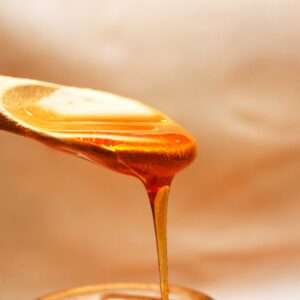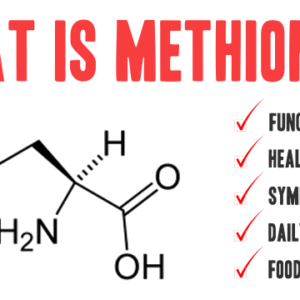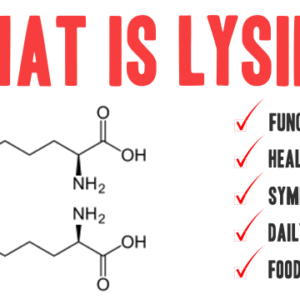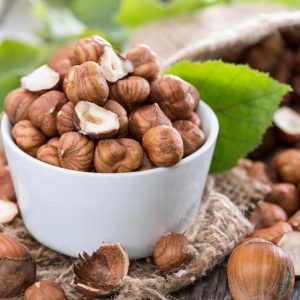Throughout history, ashwagandha has been used as a soothing tonic, helping the body adapt to stress. Ashwagandha has been used in India for 5,000 years for growth difficulties in children, weakness and weakness, rheumatism, constipation, insomnia, nervous conditions, goiter, arthritis and hormone imbalances in the elderly. A paste made with Ashwagandha root can treat burns, ulcers and other skin infections.
Ashwagandhan is known to strengthen the immune system of people who have had illness, chemotherapy or surgery. This plant also offers effective solutions to anxiety and stress by lowering cortisol levels.
Ashwagandha is also called “Indian ginseng” because of its rejuvenating properties. Means “the smell of a horse” in Sanskrit; this shows that the plant has the potential to give the vitality and strength of a stallion. The plant, which is included in the tomato family, has oval leaves and yellow flowers. It has fruits in the size of raisins. It is native to the dry regions of India, North Africa and the Middle East, but today it grows in more temperate climates, including the USA.
Other known names:
- Ajagandha
- Ayurvedic ginseng
- Indian ginseng
- Ghoda asoda
- Winter cherry
- Vajigandha
- Withania somnifera
Ashwagandha benefits
It contains many useful chemicals, including alkaloids, choline, fatty acids, amino acids and various sugars. While the leaves and fruits of the plant have valuable healing properties, its root is one of the most used herbal sources in Western medicine.
Medical researchers have been investigating ashwagandhai for years with great interest. There are over 200 studies of the healing benefits of this herb. Some important examples of the healing properties of ashwagandhan are as follows:
Lowers blood sugar
Ashwagandha is an effective way to lower high blood sugar. It seems to be very effective especially in individuals with insulin resistance, type-2 diabetes, overweight and metabolic syndrome.
In studies conducted, we see that Ashwagandha has broken insulin resistance (1). In addition, Ashwagandha is considered to be very effective in lowering average blood sugar in healthy and diabetic individuals (2).
In fact, there are some studies showing that Ashwagandha use is as effective as drugs with active substance “Glibenclamide” in the sulfonure group used by type-2 diabetes patients (3). This shows how effective Ashwagandha is on blood sugar.
Can help treat cancer
- Normal cells have dividing properties as a stage of life parts. If this feature gets out of control, the cell begins to multiply abnormally and becomes cancerous.
- One of the main logics used in cancer treatment is to initiate the “apoptosis-suicide” process, the cell’s self-disintegration mechanism.
- Ashwagandha activates this programmed mechanism of death in tumor cells, which can reduce cancerous cells (4). Ashwagandha most often,
Chest, Column, Brain, Lungs, used in cancers.
There is an important problem here. In the studies conducted, animal subjects are generally used. So we still need human research for the final result.
Reduces stress and anxiety
- The biggest problem of our age is intense stress. Almost everyone is exposed to stress in some way, and reducing it will greatly improve the quality of life. Ashwagandha helps people relax by reducing stress signals on the brain.
- In a study, it shows that those who have chronic stress and those who use Ashwagandha (69%) are more comfortable and have less sleeplessness than those who do not (5%) (5).
- This effect is so much that it even affects cortisol hormone levels secreted during stress (6). A decrease in cortisol level means stress-related overfeeding, removal of bad body and blood values. Because most of the stress-related side effects are related to the high level of cortisol hormone.
The use of Ashwagandha can be used in the treatment of depression as well as stress. Ashwagandha is so effective in this regard that it can be used in addition to treatment in many serious depression patients.
The most important thing to know here is that Ashwagandha has a synergistic effect with many antidepressants.
Therefore, individuals using antidepressants must consult their physician while using Ashwagandha.
Reduces inflammation
- Inflammation increases the risk of many diseases. Especially continuous and intense inflammation.
- Ashwagandha is especially known for its serious inflammatory-reducing properties. Studies show that the use of Ashwagandha reduces CRP levels (7).
Cholesterol and triglyceride levels decrease
- Ashwagandha can be used to control LDL and triglyceride levels known as bad cholesterol (8).
Memory and neuroprotective effect
- Ashwagandha can have a protective effect on brain tissue. Because sertbest reduces oxygen radical levels and chronic inflammation. In addition, studies indicate that Ashwagandha can improve memory (9).
- Another clinical study found that it significantly improved mental health, concentration, energy levels, social functionality, vitality and overall well-being in workers with moderate to severe anxiety. (10)
Increases testosterone levels
- Ashwagandha can also be used to increase testosterone levels, which are very important for men. In addition, Ashwagandha can increase sperm quality and number (11,12).
Ashwagandha is a good source of energy for bodybuilders and athletes. You can promote better oxygen flow to muscles and cells. It helps increase strength and endurance during exercise. This can enable the athlete to gain more lean muscle than is normally possible. It can also reduce the effect of stress hormones and lactic acid buildup.
Ashwagandha is an antioxidant.
In any foreign invasion in the body, it increases the number of white blood cells. It prepares the body to produce antigens against various infections and allergies. It is rich in antioxidants such as catalase, glutathione, and superoxide dismutase, such as Ashwaganda. All of these help protect strong free radical warriors and cells against oxidation.
Who can use Ashwagandha?
Ashwagandha is a very effective herbal supplement. For this reason, it should be used carefully.
Especially,
- Pregnant women and nursing mothers,
- Those with autoimmune disease (thyroid, lupus, type-1 diabetes),
- Those with low blood sugar
- Suffering from high blood sugar (type-2 diabetic or insulin resistant),
- Cancer treatment (especially chest, lung, colon),
- Suffering from intense stress,
- Testosterone levels are low can be listed as.
In addition, the use of Ashwagandha in all individuals should be examined and made under the supervision of a physician.
Ashwagandha plant content
Anaferine (alkaloid), anahygrine (alkaloid), beta-cysterol, chlorogenic acid (only in Ashwagandha leaf), cysteine (in Ashwagandha fruit), cuscohygrine (alkaloid), iron, pseudotropine (alkaloid), scocopoletin, somniferin (alkaloid), somniferin ), tropanol (alkaloid), withaferin A (steroid lactone), withanine (alkaloid), withananine (alkaloid) and withanolides AY (steroid lactones).
At the roots of the ashwagandha plant other alkaloids include somniferin, somnine, somniferinine, withananine, pseudo-withanine, tropine, pseudo-tropine, 3-a-gloyloxytropane, choline, cuscohygrine, isopelletierine, anapherine and anahydrine.
Referance:
- https://pubmed.ncbi.nlm.nih.gov/25796090/
- https://pubmed.ncbi.nlm.nih.gov/23125505/
- https://pubmed.ncbi.nlm.nih.gov/19564954/
- https://pubmed.ncbi.nlm.nih.gov/24046237/
- https://pubmed.ncbi.nlm.nih.gov/23439798/
- https://pubmed.ncbi.nlm.nih.gov/23439798/
- https://pubmed.ncbi.nlm.nih.gov/26989739/
- https://pubmed.ncbi.nlm.nih.gov/16713218/
- https://pubmed.ncbi.nlm.nih.gov/27037574/
- https://pubmed.ncbi.nlm.nih.gov/19718255/
- https://pubmed.ncbi.nlm.nih.gov/19501822/
- https://pubmed.ncbi.nlm.nih.gov/23796876/















